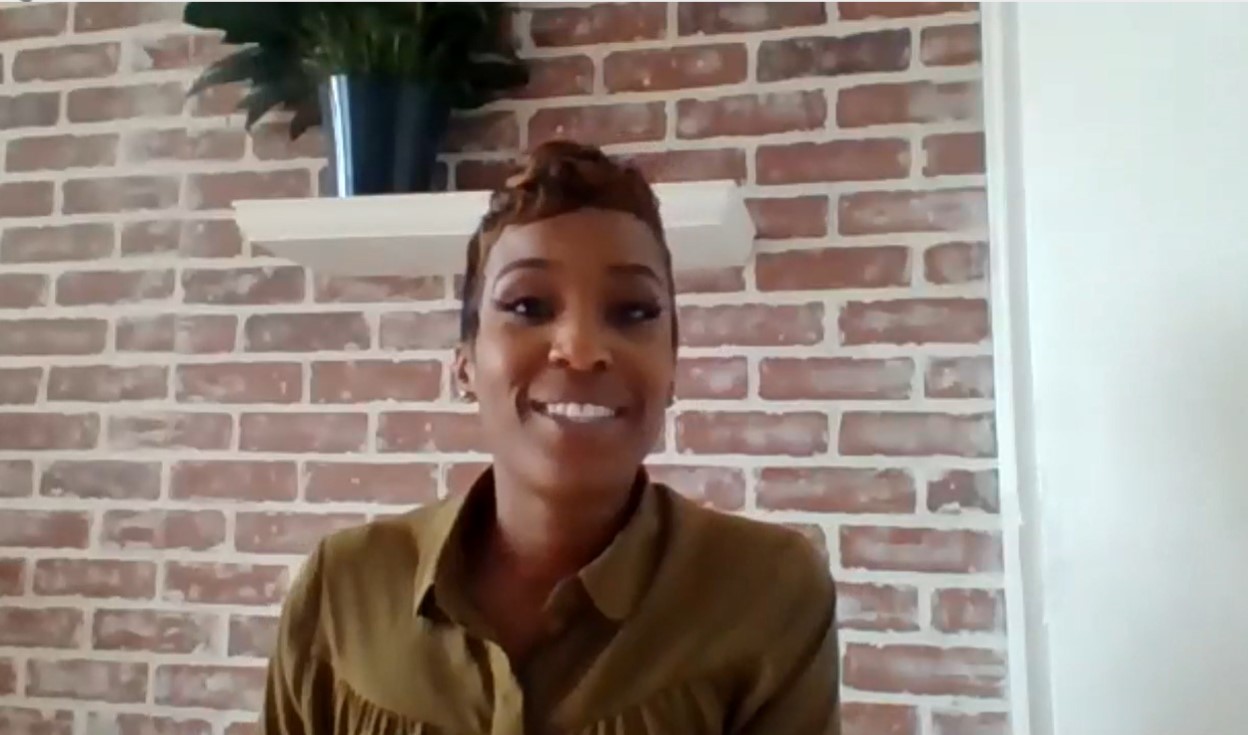Pandemic impacts D.C. reporter's job, life
By: LAUREN PRINGLE
Oct 16, 2020

Claflin alumna Megan Rivers speaks to reporting students via Zoom on Oct. 13.
Claflin alumna and Washington, D.C., television reporter Megan Rivers gave students insight on how her career has been amid the pandemic and shared tips on how to be successful in the competitive world of journalism.
Rivers, a reporter for WUSA-TV and former producer and reporter with stations in Columbia and Charleston, met with multimedia reporting students via Zoom on Oct. 13.
“This business has changed so much,” Rivers said. “I don’t know what is going to happen with it.”
She cited changing technology and a loss of objectivity in reporting as factors. She said the coronavirus has led to marked changes that likely will be permanent.
Once many more people watched traditional TV, the 2010 Claflin graduate said. The digital world changed that and now digital has made its way into TV and a marketplace once dominated by cable.
Rivers said she has been working from home for a while now but was able to step out into the city to cover protests and marches after the killing of George Floyd in Minnesota.
“I went seven weeks without seeing a person I knew,” Rivers said of the work period until covering the protests.
She was not allowed to perform in-person interviews for two weeks after the protests due to potential exposure to the coronavirus.
Rivers is continuing to work at home but would rather be working in a traditional newsroom environment creating content.
“It’s become the new norm,” said Rivers, talking about social distancing all the time and working from home.
She is currently a morning reporter with hours from 3 a.m. to 11 a.m.
Despite having to sit at home, she still finds a way to do her job while fighting through the obstacles and challenges that the pandemic has thrown at her.
Rivers said a loss of objectivity in reporting as doing harm to journalism.
She said her job is not to be Bakari Sellers, a Denmark native and CNN political commentator, it is to report the news as objectively as possible.
“Donald Trump single handedly changed the way we do news,” she said. “The news cycle is very heavy.”
Rivers cited Anderson Cooper of CNN as once being a good reporter, saying he now has become more of a commentator.
“There are two sides to every story,” Rivers of the need for objectivity.
“Don’t assume I don’t like Donald Trump,” Rivers said of the impression many will have because she is a Black woman. “Don’t stereotype me.”
As a journalist, “I’m not going to confirm or deny my positions.”
Everyone has biases, including reporters, but they must do their best to put them aside in reporting, she said. “How I personally feel should not cloud the story.”
Giving students advice about journalism careers, Rivers stressed the importance of internships.
“Get an internship … people love free help,” Rivers said. To get job, you need to have experience.
Rivers said networking is a huge part in journalism.
“Networking is extremely important,” Rivers said. She advised students to join the National Association for Black Journalists and said it is a good networking platform for young journalists.
Rivers also urged students to get out of their comfort zone and to be confident when speaking to other people.
Considering that social media has become a huge success in the 21st century with young adults, she warned students to be mindful of what they put on their social media as it could come back to haunt them later in life.
Megan Rivers has had many years in the journalism field, and she does not seem to be slowing down any time soon. She said her career has been a whirlwind of emotions and challenges but in the end, “it’s all been worth it.”
Rivers said she would not have changed a thing.